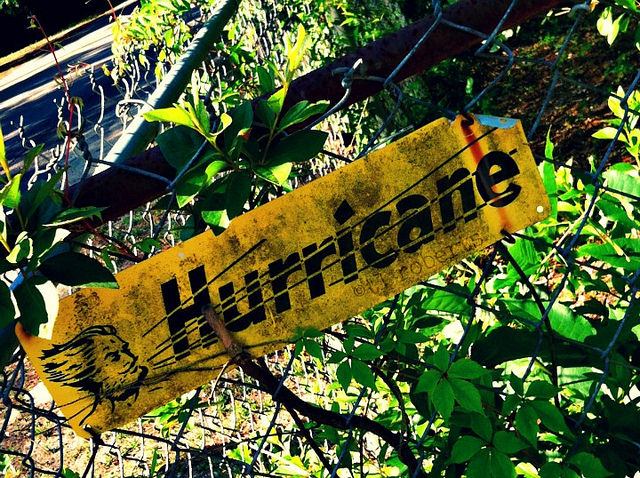Latino Climate Politics, or Seeing God’s wrath in the hurricanes

This is fascinating and timely given the natural disasters in Mexico and Puerto Rico. But it takes the writer 11 paragraphs to get to the point. Still, it's a good point: "Contrary to popular belief, Latinos and Latinas, not white liberals, care the most about climate change." But, "the idea that God will work it out, or 'religiously sanctioned fatalism of sorts,' may translate to climate inaction."
Hurricane Harvey left fear, uncertainty and ruin in its wake. The Category 4 storm left some people questioning what could come next, to which Mother Nature quickly responded with another hurricane: Irma. This worry and wonder, however, led some of my friends — particularly first- and second-generation Latinos and Latinas — to religious revelation.
I saw many turn to Luke 21:25-26, pointing out that the total solar eclipse occurred Aug. 21 and was followed shortly thereafter by Hurricane Harvey, which made landfall on the Texas coast Aug. 25. By Aug. 26, the state was feeling the climate change-fueled disaster, tornadoes and all. This is what that Bible verse says:
“There will be signs in the sun, moon and stars. On the earth, nations will be in anguish and perplexity at the roaring and tossing of the sea. People will faint from terror, apprehensive of what is coming on the world, for the heavenly bodies will be shaken.”
And while this coincidence is eerie, to say the least, it is just that: coincidence. That didn’t stop my friend Bryan Mora, 24, a second-generation Latino, from sharing it on Instagram. He and I went to high school together. Mora is not religious, he says, but the number alignment blew his mind, so he had to share it. He understands that climate change is involved, but he’s also curious of other forces at work — of a divine power or not.
On the other hand, Kelly Barralaga, a 26-year-old mother of two who is a family friend, shared the image on Facebook because it did signal an end of times for her. She believes in science but looks at it through a religious lens. “I think scientific stuff comes from somewhere,” Barralaga says. “It’s just a way to try to explain other things God left here on Earth for us.”
One Twitter user tweeted out with more than 100,000 others retweeting her. Georgia meteorologist Jeff Cox even shared the verse on Facebook. Conflict shouldn’t necessarily exist between science and religion — and it doesn’t for the most part — but something’s fishy when a meteorologist uses religion to explain science.
Benjamín Valentín, a professor who studies Latinx* Christianity at the Yale University Divinity School, has heard Luke 21:25-26 referenced frequently in the past, especially among Latinos and Latinas. A pastor mentioned it during a service Valentín attended in Boston following the eclipse. The congregation just so happened to be predominantly Latino and Latina.

